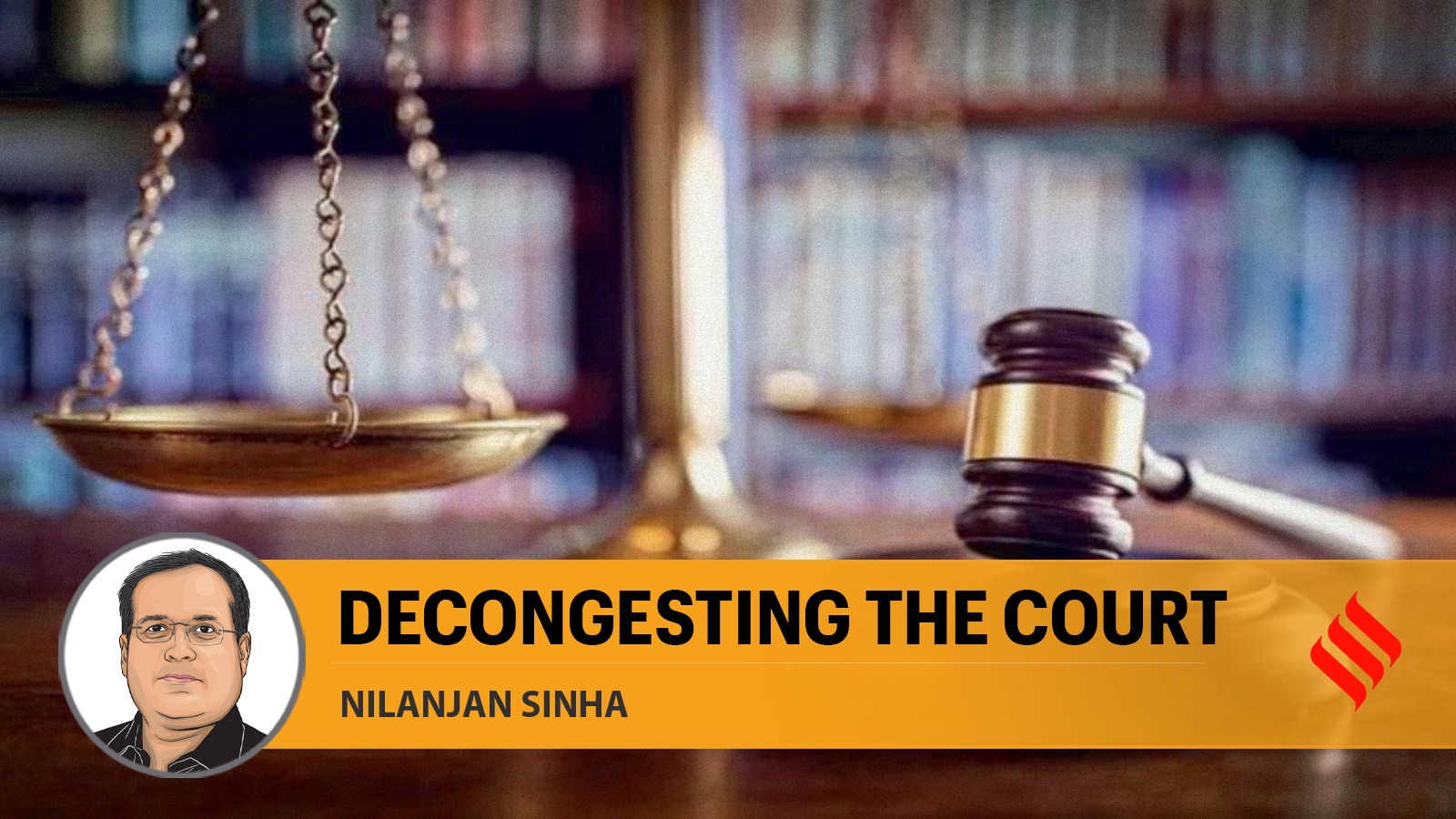The Indian judicial system is currently overwhelmed with a backlog of pending cases, particularly those that are long drawn. According to available data, 74.9 per cent of the cases in the high courts and 63.1 per cent of the cases in the lower courts are more than a year old, with other judicial fora similarly saturated. In this context, judicial decongestion has become imperative, with active steps from all stakeholders being critically important.
Story continues below this ad
The adage “justice delayed is justice denied” has been oft-repeated in light of the increasing delays in the disposal of cases. A pertinent question arises: On whom does the onus fall to ensure that justice is not delayed? While we may be quick to blame the overburdened judicial system, there are other key contributors to prolonged litigation.
A recent judgment (September 30, 2024) by the Supreme Court in K Vadivel v K Shanthi & Ors provides insights from the apex court on this issue. The case arose as an appeal from an order of the Madurai Bench of the Madras High Court in a criminal matter, where the FIR was registered in 2013, final arguments concluded in 2019, and further investigation was ordered by the high court in 2021. While the case presents an interesting interface for assessing certain aspects of criminal law jurisprudence, it also offers a critical insight into the question of delay and protracted litigation. The relevant paragraph of the judgment reads as follows:
“The legal profession has an important role to play in the process. Any proceeding or application which prima facie lacks merit should not be instituted in a court. We are constrained to observe this because of late we notice that pleadings/petitions with outrageous and ex facie unbelievable averments are made with no inhibition whatsoever…Reading some of the averments therein, we are left to wonder whether at all the deponents were conscious of what has been written purportedly on their behalf, before appending their signatures. These misadventures directly impinge on the rule of law, because they add to the pendency and the consequential delay in the disposal of other cases which are crying for justice. It is time that such frivolous and vexatious proceedings are met with due sanctions in the form of exemplary costs to dissuade parties from resorting to such tactics…”
Story continues below this ad
The apex court categorically observes that “all the stakeholders in the process have contributed to the delay”. Most notably, the court emphasises the critical role of the legal profession in ensuring that prima facie frivolous or meritless cases are not instituted in courts. Further, the SC suggests that “frivolous and vexatious proceedings” should be “met with due sanctions in the form of exemplary costs to dissuade parties from resorting to such tactics.” Courts also play an important role in ensuring that their jurisdiction is exercised only where genuine grounds exist and based on established legal principles. Taking a strong stand, the SC also notes that where parties unjustifiably delay matters, “the courts need to be vigilant and nip any such attempt in the bud instantly”.
most read
The goals of justice require a balance between the speedy disposal of cases and ensuring that the pursuit of truth and adherence to legal procedure are not hampered. This requires a coordinated, systemic approach to judicial remedies, with each stakeholder taking responsibility to avoid clogging the machinery of justice delivery. Extrapolating the views of the Supreme Court, it is evident that every stakeholder, including lawyers, corporate entities and individual citizens as well as judges and courts, must reassess their approach and introspect on their role in reducing delay. Particularly in commercial matters, where the time value of money is significant, delay from any stakeholder can have enormous economic ramifications.
International jurisdictions, such as Hong Kong, Singapore and the USA have evolved such mechanisms to address this issue. The US, for example, has 28 USC § 1927, which provides for sanctions in case of vexatious litigation. Legislative enactments focusing on judicial efficiency, such as Ireland’s Court Proceedings (Delays) Act 2024, are other avenues that help to decongest and make the delivery of justice more efficient.
The Supreme Court rightly notes that “denial of speedy and timely justice can be disastrous to rule of law in the long term.” As the court aptly underscores “the administration of justice feeds on the faith of the citizenry and nothing should be done to even remotely shake that faith and confidence”. While the judiciary has taken several notable steps to ensure faster case disposal, the problem needs to be collectively addressed by all stakeholders. All parties involved, and perhaps society at large, must take on the responsibility to recognise, categorise, and utilise judicial remedies in a responsible, time-bound and prudent manner.
The writer is general counsel, ICICI Bank


